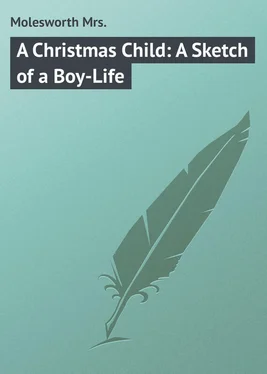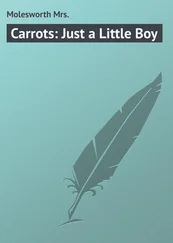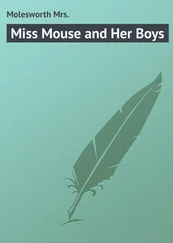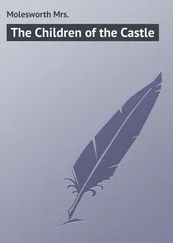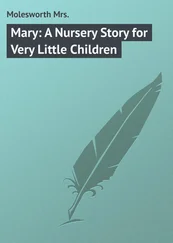Mrs. Molesworth - A Christmas Child - A Sketch of a Boy-Life
Здесь есть возможность читать онлайн «Mrs. Molesworth - A Christmas Child - A Sketch of a Boy-Life» — ознакомительный отрывок электронной книги совершенно бесплатно, а после прочтения отрывка купить полную версию. В некоторых случаях можно слушать аудио, скачать через торрент в формате fb2 и присутствует краткое содержание. Жанр: foreign_prose, foreign_children, на английском языке. Описание произведения, (предисловие) а так же отзывы посетителей доступны на портале библиотеки ЛибКат.
- Название:A Christmas Child: A Sketch of a Boy-Life
- Автор:
- Жанр:
- Год:неизвестен
- ISBN:нет данных
- Рейтинг книги:3 / 5. Голосов: 1
-
Избранное:Добавить в избранное
- Отзывы:
-
Ваша оценка:
- 60
- 1
- 2
- 3
- 4
- 5
A Christmas Child: A Sketch of a Boy-Life: краткое содержание, описание и аннотация
Предлагаем к чтению аннотацию, описание, краткое содержание или предисловие (зависит от того, что написал сам автор книги «A Christmas Child: A Sketch of a Boy-Life»). Если вы не нашли необходимую информацию о книге — напишите в комментариях, мы постараемся отыскать её.
A Christmas Child: A Sketch of a Boy-Life — читать онлайн ознакомительный отрывок
Ниже представлен текст книги, разбитый по страницам. Система сохранения места последней прочитанной страницы, позволяет с удобством читать онлайн бесплатно книгу «A Christmas Child: A Sketch of a Boy-Life», без необходимости каждый раз заново искать на чём Вы остановились. Поставьте закладку, и сможете в любой момент перейти на страницу, на которой закончили чтение.
Интервал:
Закладка:
"What is thoo doing?" he said gravely, as if not quite sure that his mother was behaving correctly, for nurse always told him to "walk on straight, there's a good boy, Master Ted," and it was a little puzzling to understand that mammas might do what little boys must not. It was one of the puzzles which Ted found there were a good many of in the world, and which he had to think over a good deal in his own mind before it grew clear to him. "What is thoo doing?" he asked.
"I am looking for pretty stones to take home and keep," replied his mother.
"Pitty 'tones," repeated Ted, and then he said no more, but some new ideas had wakened in his baby mind.
Nurse noticed that he was quieter than usual that afternoon, for already Ted was a good deal of a chatterbox. But his eyes looked bright, and plainly he had some pleasant thought in his head. The next day was fine, and he went off with nurse for his walk. He looked a little anxious as they got to the turn of the road, or rather to the joining of two roads, one of which led to the sea, the other into country lanes.
"Thoo is doing to the sea?" he inquired.
"Yes, dear," nurse replied, and Ted's face cleared. When they got to the shore he trotted on quietly, but his eyes were very busy, busier even than usual. They looked about them in all directions, till at last they spied what they wanted, and for half a minute or so nurse did not notice that her little charge had left her side and was lagging behind.
"What are you about, Master Ted?" she said hastily, as glancing round she saw him stooping down – not that he had very far to stoop, poor little man – and struggling to lift some object at his feet.
"A 'tone," he cried, "a beauty big 'tone for Ted's muzzer," lifting in his arms a big round stone – one of the kind that as children we used to say had dropped from the moon – which by its nice round shape and speckledness had caught his eye. "Ted will cally it hisself."
And with a very red face, he lugged it manfully along.
"Let me help you with it, dear," said nurse.
But "No, zank thoo," he replied firmly each time that the offer was repeated. "Ted must cally it his own self."
And "cally" it he did, all the way. Nurse could only succeed in getting him to put it down now and then to rest a bit, as she said, for the stone was really so big a one that she was afraid of it seriously tiring his arms. More than once she pointed out prettier and smaller stones, and tried to suggest that his mother might like them quite as well, or better; but no. The bigness, the heaviness even, was its charm; to do something that cost him an effort for mother he felt vaguely was his wish; the "lamp of sacrifice," of self -sacrifice, had been lighted in his baby heart, never again to be extinguished.
And, oh, the happiness in that little heart when at last he reached his mother's room, still lugging the heavy stone, and laid it at her feet!
"Ted broughtened it for thoo," he exclaimed triumphantly. And mother was so pleased! The stone took up its place at once on the mantelpiece as an ornament, and the wearied little man climbed up on to his mother's knee, with a look of such delight and satisfaction as is sweet to be seen on a childish face.
So Ted's education began. He was growing beyond the birds and the flowers already, though only a tiny man of three; and every day he found new things to wonder at, and admire, and ask questions about, and, unlike some small people of his age, he always listened to the answers.
After a while he found prettier presents to bring home to his mother than big stones. With the spring days the flowers came back, and Ted, who last year had been too little to notice them much, grew to like the other turning of the road almost better than that which led to the sea. For down the lanes, hiding in among the hedges, or more boldly smiling up at him in the fields, he learnt to know the old friends that all happy children love so dearly.
One day he found some flowers that seemed to him prettier than any he had ever seen, and full of delight he trudged home with a baby bouquet of them in his little hot hands. It was getting past spring into summer now, and Ted felt a little tired by the time he and his nurse had reached the house, and he ran in as usual to find his mother and relate his adventures.
"Ted has broughtened some most beauty flowers," he eagerly cried, and his mother stooped down to kiss and thank him, even though she was busy talking to some ladies who had come to see her, and whom Ted in his hurry had hardly noticed. He glanced round at them now with curiosity and interest. He rather liked ladies to come to see his mother, only he would have liked it still better if they would have just let him stay quietly beside her, looking at them and listening to what they said, without noticing him. But that way of behaving would not have seemed kind, and as Ted grew older he understood this, and learnt that it was right to feel pleased at being spoken to and even kissed.
"How well Ted is looking," said one of the ladies to his mother. "He is growing quite a big, strong boy. And what pretty flowers he has brought you. Are you very fond of flowers, my little man?"
"Ses," said Ted, looking up in the lady's face.
"The wild flowers about here are very pretty," said another of the ladies.
"Very pretty," said his mother; "but it is curious, is it not, that there are no cowslips in this country? They are such favourites of mine. I have such pleasant remembrances of them as a child."
She turned, for Ted was tugging gently at her sleeve. "What is towslips?" he asked.
"Pretty little yellow flowers, something like primroses," said his mother.
"Oh!" said Ted. Then nurse knocked at the door, and told him his tea was ready, and so he trotted off.
"Mother loves towslips," he said to himself two or three times over, till his nurse asked him what he was talking about.
"But there's no cowslips here," said nurse, when he had repeated it.
"No," said Ted; "but p'raps Ted could find some. Ted will go and look to-morrow with nursey."
"To-morrow's Sunday, Master Ted," said nurse; "I'll be going to church."
"What's church?" he asked.
"Church is everybody praying to God, all together in a big house. Don't you remember, Master Ted?"
"Oh ses, Ted 'members," he replied. "What's praying to 'Dod, nurse?"
"Why, I am sure you know that, Master Ted. You must have forgotten. Ask your mamma again."
Ted took her advice. Later in the evening he went downstairs to say good-night. His mother was outside, walking about the garden, for it was a beautiful summer evening. Ted ran to her; but on his way something caught his eye, which sent a pang to his little heart. It was the bunch of flowers he had gathered for her, lying withered already, poor little things, on a bench just by the door, where she had laid them when saying good-bye to her visitors. Ted stopped short; his face grew very red, and big tears rose slowly to his eyes. He was carefully collecting them together in his little hand when his mother called to him.
"Come, Ted, dear," she said; "what are you about?"
More slowly than his wont Ted trotted towards her. "Muzzer doesn't care for zem," he said, holding out his neglected offering. "Poor f'owers dies when they's leaved out of water."
"My darling," said his mother with real sorrow in her voice, "I am so sorry, so very sorry, dear little Ted," and she stooped to kiss him. "Give them to me now, and I will always keep them."
Ted was quickly consoled.
"Zem's not towslips," he said regretfully. "Ted would like towslips for muzzer." And then with a quick change of thought he went on, "What is praying to 'Dod?" he said, looking up eagerly with his bright blue eyes.
"Praying to God means asking Him anything we want, and then He answers us. Just as you ask me something, and I answer you. And if what we ask is good for us, He gives it us. That is one way of answering our prayers, but there are many ways. You will understand better when you are bigger, dear little Ted."
Читать дальшеИнтервал:
Закладка:
Похожие книги на «A Christmas Child: A Sketch of a Boy-Life»
Представляем Вашему вниманию похожие книги на «A Christmas Child: A Sketch of a Boy-Life» списком для выбора. Мы отобрали схожую по названию и смыслу литературу в надежде предоставить читателям больше вариантов отыскать новые, интересные, ещё непрочитанные произведения.
Обсуждение, отзывы о книге «A Christmas Child: A Sketch of a Boy-Life» и просто собственные мнения читателей. Оставьте ваши комментарии, напишите, что Вы думаете о произведении, его смысле или главных героях. Укажите что конкретно понравилось, а что нет, и почему Вы так считаете.
